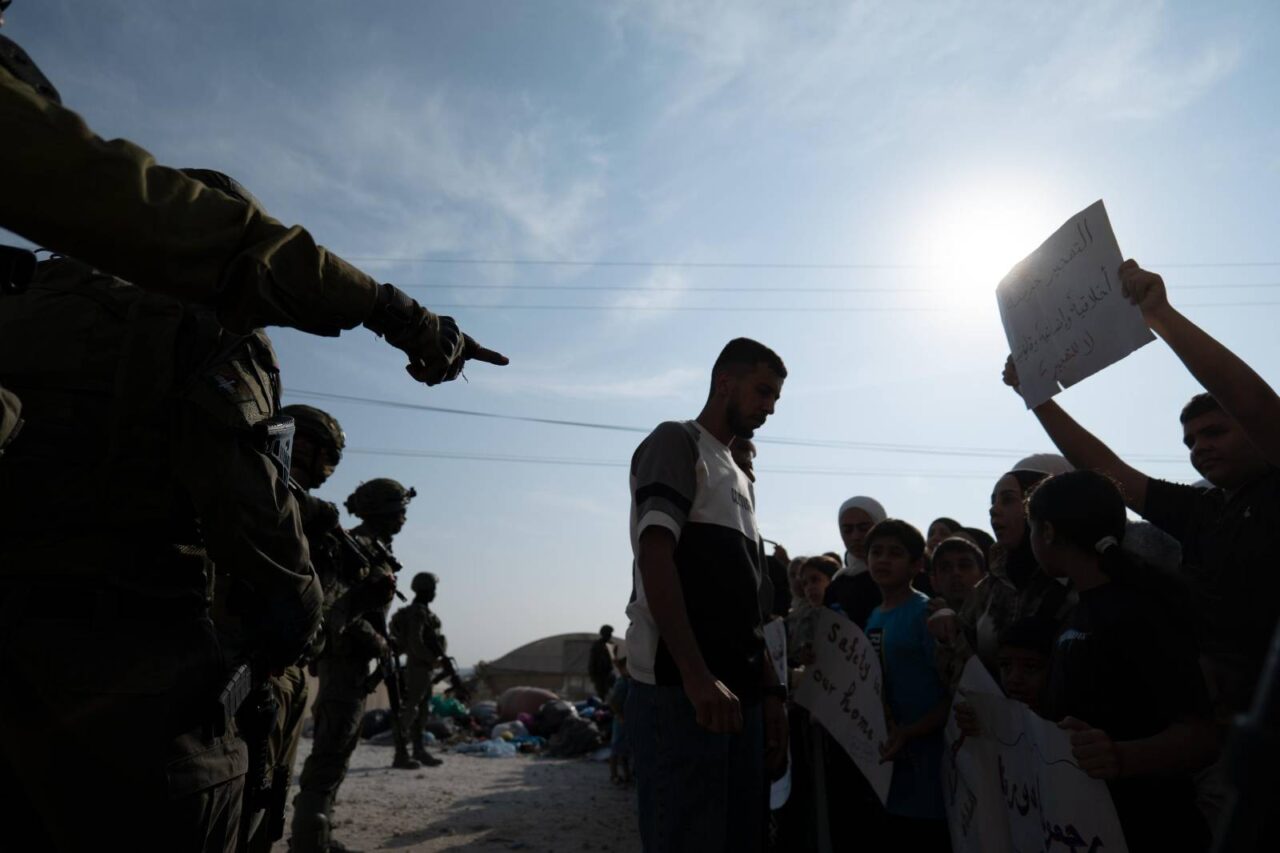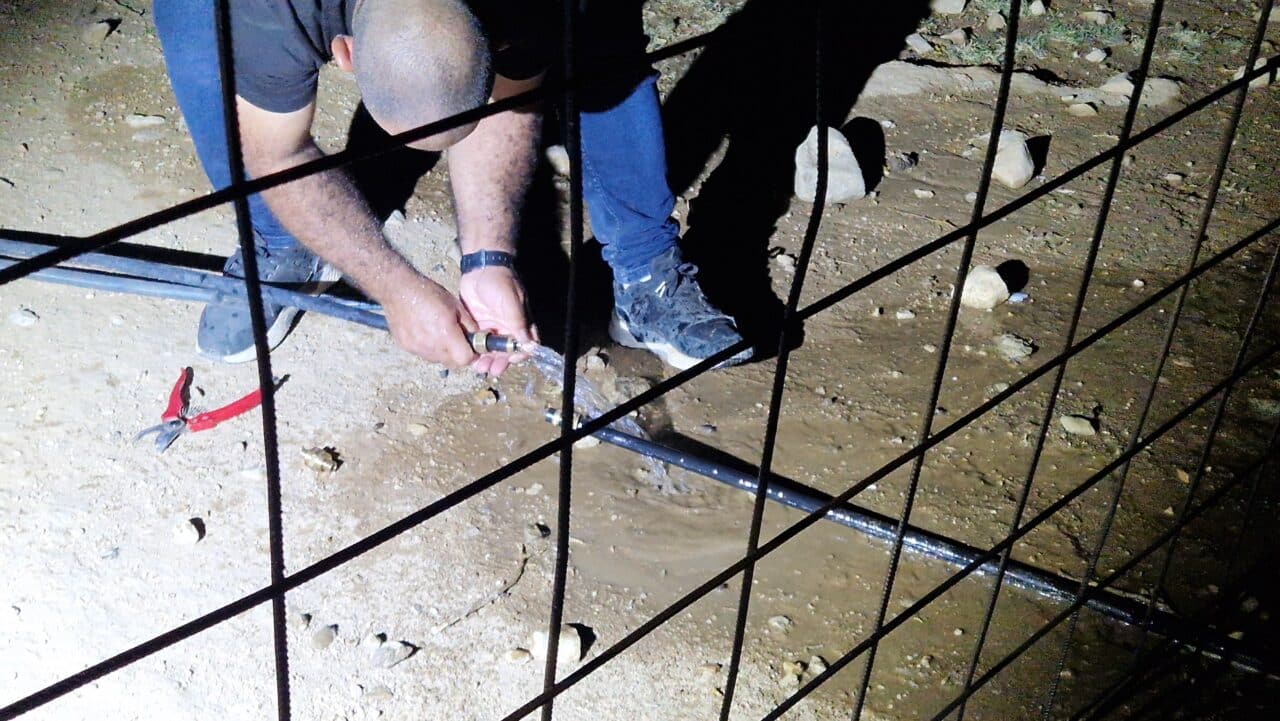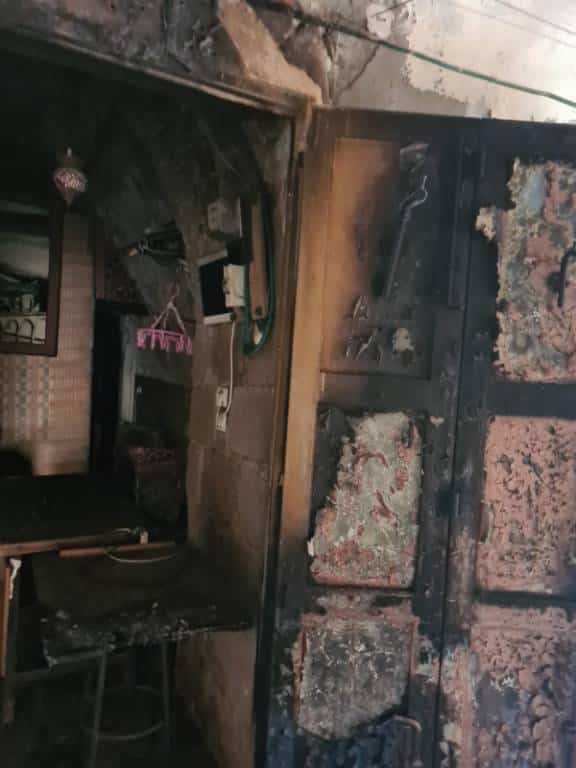Category: Reports
-
Palestinian Refugees and the Right of Return
By Diana khwaelid Nur Shams camp – Dozens of Palestinians peacefully demonstrated to demand the return to their homes in the Nur Shams camp. Palestinian and international activists joined the demonstration in solidarity. “We want to return to our camp and our homes.” This was echoed by Palestinian demonstrators from the Nur Shams refugee camp…
-
Fasayil al Wusta: Forced Displacement Continues in the Jordan Valley
Palestinian households in the village of Fasayil al Wusta, located in the Jordan Valley north of Jericho, have been facing increasing harassment and attacks over the past month. As a result, five families decided to leave the area on Thursday, November 6. Only one family remains, still resisting despite displacement efforts. Fasayil al Wusta lies…
-
Firebombing in Al-Khalil
A trail of charcoal tire tracks are an unwelcome sight this morning in Hebron’s old city, tracing a grim path past shuttered shops and beneath wire netting that sags with the weight of rubbish, bottles, and stones thrown from above. A tailor’s shop and car were firebombed last night by Israeli colonizers in the Old…



